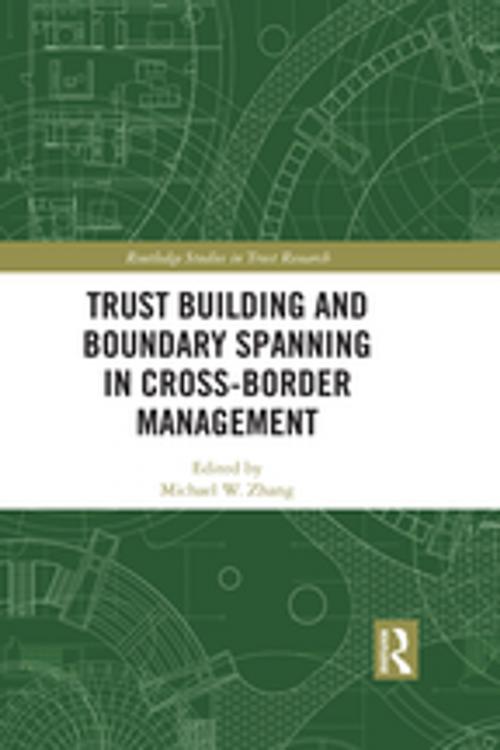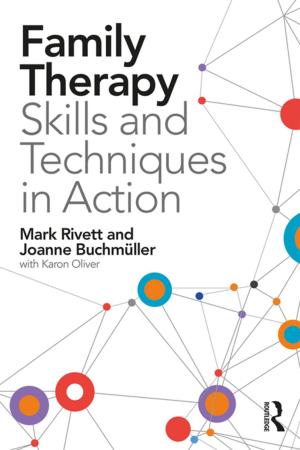Trust Building and Boundary Spanning in Cross-Border Management
Business & Finance, Business Reference, Corporate History, Management & Leadership, Planning & Forecasting| Author: | ISBN: | 9781351858816 | |
| Publisher: | Taylor and Francis | Publication: | March 9, 2018 |
| Imprint: | Routledge | Language: | English |
| Author: | |
| ISBN: | 9781351858816 |
| Publisher: | Taylor and Francis |
| Publication: | March 9, 2018 |
| Imprint: | Routledge |
| Language: | English |
This edited book addresses two critical issues in international management: building trust and managing boundary spanning activities between international business partners. The duel-process of internationalization of multinational corporations (MNCs), through globalisation and regionalisation, has helped MNCs to increase their market expansion and improve the capabilities of innovation and learning. By creating various forms of international strategic alliances (ISAs), MNCs have become structurally more complex and geographically more dispersed. As a result, MNCs in general and ISAs in particular face the challenges of discerning blurred organisational boundaries, reconfiguring the control mechanisms, integrating diversified resources, and coordinating distributed activities in time and space.
Research in organisation behaviour indicates that boundary spanners play critical yet unspecified roles and functions in managing cross-boundary relationships. A core boundary spanning function is to build trust relationships. When organisations engage in business transactions, members of the organisations are concerned with not only the outcomes of economic transactions but also the processes of social exchanges. Boundary spanners may succeed in building interpersonal trust in a partnership, nonetheless their effort may not lead to inter-partner trust without an effective implementation of the institutionalisation process. Whereas trustworthiness is the antecedent to trust providing the basis for trust to develop, distrust manifests itself as a separate and linked concept to trust. These dynamic features of trust, trustworthiness, and distrust are critically elaborated.
Trust Building and Boundary Spanning in Cross-Border Management is dedicated to explicating these under-researched themes and contributing to the emerging streams of research in micro foundations and micro-structural approaches. It illustrates the latest research on the topic and will be of interest to both students at an advanced level, academics and reflective practitioners in the fields of organisational behaviour and theory, strategic management, international strategy and strategic alliances.
This edited book addresses two critical issues in international management: building trust and managing boundary spanning activities between international business partners. The duel-process of internationalization of multinational corporations (MNCs), through globalisation and regionalisation, has helped MNCs to increase their market expansion and improve the capabilities of innovation and learning. By creating various forms of international strategic alliances (ISAs), MNCs have become structurally more complex and geographically more dispersed. As a result, MNCs in general and ISAs in particular face the challenges of discerning blurred organisational boundaries, reconfiguring the control mechanisms, integrating diversified resources, and coordinating distributed activities in time and space.
Research in organisation behaviour indicates that boundary spanners play critical yet unspecified roles and functions in managing cross-boundary relationships. A core boundary spanning function is to build trust relationships. When organisations engage in business transactions, members of the organisations are concerned with not only the outcomes of economic transactions but also the processes of social exchanges. Boundary spanners may succeed in building interpersonal trust in a partnership, nonetheless their effort may not lead to inter-partner trust without an effective implementation of the institutionalisation process. Whereas trustworthiness is the antecedent to trust providing the basis for trust to develop, distrust manifests itself as a separate and linked concept to trust. These dynamic features of trust, trustworthiness, and distrust are critically elaborated.
Trust Building and Boundary Spanning in Cross-Border Management is dedicated to explicating these under-researched themes and contributing to the emerging streams of research in micro foundations and micro-structural approaches. It illustrates the latest research on the topic and will be of interest to both students at an advanced level, academics and reflective practitioners in the fields of organisational behaviour and theory, strategic management, international strategy and strategic alliances.















